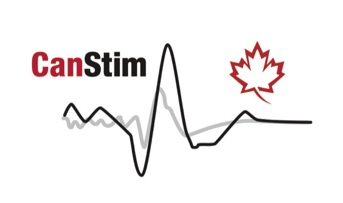
Research team to receive $1.9M investment to fast-track discovery, launch multi-site clinical trials, test new technologies, and transform treatment
MONTREAL, March 24, 2021 – A new national platform that aims to harness the potential of non-invasive stimulation to safely treat the stroke-affected brain has received a major grant from Brain Canada and the Heart & Stroke Foundation Canadian Partnership for Stroke Recovery (CPSR).
Co-led by stroke neurologist Dr. Alexander Thiel of McGill University and neuroscientists Dr. Jodi Edwards of the University of Ottawa Heart Institute (UOHI) and Dr. Numa Dancause of the Université de Montréal, the Canadian Platform for Research in Non-invasive Brain Stimulation (CanStim) will receive $1.9 million over 3.5 years through the Brain Canada Platform Support Grants program to accelerate discovery and move new research into clinical practice.
“By investing in platforms that will allow research resources to be shared, we are not only fostering interdisciplinary collaboration, but also enabling science to move at a much quicker pace,” says Dr. Viviane Poupon, Brain Canada President and CEO.
The first platform of its kind in the world, CanStim features a unique translational approach towards stroke rehabilitation and recovery research by integrating pre-clinical and clinical research from the project inception. The platform will provide the necessary research capacity in non-invasive brain stimulation methods, such as repetitive transcranial magnetic stimulation (rTMS), to develop and optimize novel approaches for people living with stroke disabilities and other neurological disorders. Additionally, CanStim will provide opportunities to trainees across Canada to explore new interdisciplinary approaches to studying stroke recovery.
“While rTMS shows promise of becoming an effective option for enhancing rehabilitation in stroke survivors, clinical trial data are needed to establish the effectiveness before it can be adopted into routine clinical practice,” explains Dr. Thiel. “To date, few stroke rehabilitation clinical trials have used rTMS due to either a lack of consensus about the optimal parameters to use in stroke survivors, varying protocols, or the absence of a national platform to facilitate use.”
“CanStim’s integrated design will enable us to rapidly advance the development of optimized protocols for the use of TMS in stroke rehabilitation,” says Dr. Edwards, who is director of the Brain and Heart Nexus Research Program at UOHI.
Used in combination with rehabilitation therapy, rTMS is a safe, non-invasive method to prime the brain by delivering short magnetic pulses on the outside of the skull. It has the potential to enhance recovery and reduce the amount of standard therapy required to achieve gains.
Particularly appealing about this new initiative is the opportunity to collaborate with industry. CanStim will bring developed devices to the patient faster by accelerating clinical trials and it will offer expertise in pre-clinical research to develop new tools with industry partners. “Our platform has a unique structure that will catalyze the development of novel approaches and the testing of promising technologies,” Dr. Dancause says.
According to a 2015 study published in the journal Stroke, there are more than 405,000 Canadians living with long-term disability from stroke – and the number is expected to almost double by 2038. “New technologies like brain stimulation hold so much promise for people recovering from stroke,” says Katie Lafferty, CEO of the CPSR. “It’s very exciting to have a national effort of this scale focused on this new approach.”
The CanStim team involves the leading recovery researchers from Ottawa, Montreal, Quebec City, Kingston, Vancouver, Calgary and St. John’s.
Team members include: Stephen Scott, Centre for Neuroscience Studies Queen’s University; Douglas Cook, Queen’s University; Lara Boyd, University of British Columbia; Sean Dukelow, Department of Clinical Neurosciences, University of Calgary; Catherine Mercier, Département de Réadaptation, Laval University; Marc Roig Pull, School of Physical and Occupational Therapy, McGill University; Joyce Fung, School of Physical and Occupational Therapy, McGill University; and Michelle Ploughman, Physical Medicine and Rehabilitation, Memorial University of Newfoundland.
This project has been made possible with the financial support of Health Canada, through the Canada Brain Research Fund, an innovative partnership between the Government of Canada (through Health Canada) and Brain Canada, the Heart & Stroke Foundation Canadian Partnership for Stroke Recovery and Le Réseau Provincial de Recherche en Adaptation-Réadaptation (REPAR).
– 30 –
The HSF Canadian Partnership for Stroke Recovery is a joint initiative of Heart & Stroke and Canada’s leading stroke research centres. Headquartered at the University of Ottawa, the Partnership is restoring lives through research. Learn more at www.canadianstroke.ca.
Brain Canada is a national non-profit organization that enables and supports excellent, innovative, paradigm-changing brain research in Canada. It plays a unique and invaluable role as a national convener of the brain research community. Brain Canada understands that better insight into how the brain works contributes to the prevention, diagnosis, treatment and cure of disorders of the brain, thereby improving the health outcomes and quality of life of all Canadians. To learn more, please visit braincanada.ca.
Contact:
Cathy Campbell, cathy@canadianstroke.ca, 613-852-2303

